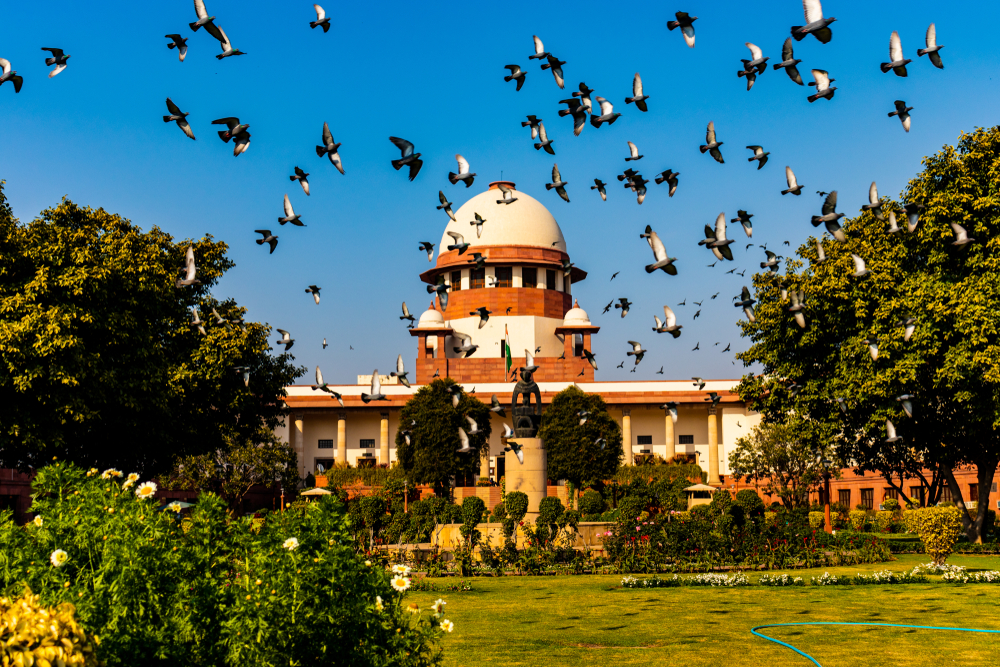The Supreme Court on Tuesday recalled two of its directions relating to the dilution of the Scheduled Castes and Scheduled Tribes (Prevention of Atrocities) Act, 2018, as it restored the power of police to make arrests without a preliminary inquiry.
A three-judge bench of Justices Arun Mishra, M.R. Shah and Bhushan Gavai, however, desisted from interfering with another controversial provision of the March 20, 2018, judgment passed by a two-judge bench — that a person booked under the Act cannot be denied anticipatory bail.
The three-judge bench, while recalling a part of the earlier judgment on a review petition filed by the Centre and several organisations, elaborately observed on the continuing practice of untouchability in the country despite it being banned 70 years ago.
“…Resultantly, we are of the considered opinion that direction Nos. (iii) and (iv) issued by this Court deserve to be and are hereby recalled and consequently we hold that direction No. (v), also vanishes. The review petitions are allowed to the extent mentioned above,” the apex court said.
In the directions of March 20, 2018, the two-judge bench of Justices Adarsh Goel and U.U. Lalit had held under No. III that a public servant accused under the Act could be arrested only with the prior permission of the appointing authority, and a non-public servant could be picked up only with the approval of an officer of the rank of senior superintendent of police.
Under direction No. IV, the court had said the police must conduct a preliminary inquiry to check the veracity of a complaint before arresting any persons under the Act. Under direction No. V, any violation of the directions would invite contempt proceedings against the officials concerned.
However, a person accused under the Act can seek an anticipatory bail or quashing of such relief by filing an application under CrPC Section 482 before a high court, the Supreme Court said on Tuesday.
Referring to several of its earlier judgments, including the 2014 five-judge constitution bench ruling in the Lalita Kumar Vs state of UP case, the apex court said the police were duty-bound to register an FIR in every criminal case when a complaint is lodged.
Relying on statistics furnished by the Centre, which had quoted the National Crime Records Bureau, the court noted that only 9 to 10 per cent of cases under the Act were found to be false.
“It cannot be disputed that as the members of the Scheduled Castes and Scheduled Tribes have suffered for long; the protective discrimination has been envisaged under Article 15 of the Constitution of India and the provisions of the Act of 1989 to make them equals.
“All the offences under the Atrocities Act are cognisable. The impugned directions (of March 20, 2018) put the riders on the right to arrest,” Justice Mishra, who authored the judgment, said.
Justice Mishra noted that SCs and STs in various parts of the country were still struggling for quality life and for exercising civil rights. SCs and STs are still discriminated against as they continue to face the scourge of untouchability.
“In spite of reservation, the fruits of development have not reached them, by and large, they remain unequal and vulnerable section of the society. The classes of Scheduled Castes and Scheduled Tribes have been suffering ignominy and abuse, and they have been outcast socially for centuries,” Justice Mishra wrote.
“The efforts for their uplift should have been percolated down to eradicate their sufferings. Though Article 17 of the Constitution prohibits untouchability, whether untouchability has vanished? We have to find the answer to all these pertinent questions in the present prevailing social scenario in different parts of the country.
“The clear answer is that untouchability, though intended to be abolished, has not vanished in the last 70 years. We are still experimenting with ‘tryst with destiny’. The plight of untouchables is that they are still denied various civil rights; the condition is worse in the villages, remote areas where fruits of development have not percolated down.
“They cannot enjoy equal civil rights. So far, we have not been able to provide the modern methods of scavenging to Harijans due to lack of resources and proper planning and apathy,” Justice Mishra observed.
The court noted that even today SC and STs can’t shake hands with a person of a higher class on equal footing.
“Whether we have been able to reach that level of psyche and human dignity and able to remove discrimination based upon caste? Whether false guise of cleanliness can rescue the situation, how such condition prevails and have not vanished, are we not responsible? The answer can only be found by soul searching. However, one thing is sure that we have not been able to eradicate untouchability in a real sense as envisaged and we have not been able to provide downtrodden class the fundamental civil rights and amenities, frugal comforts of life which make life worth living,” Justice Mishra remarked.










